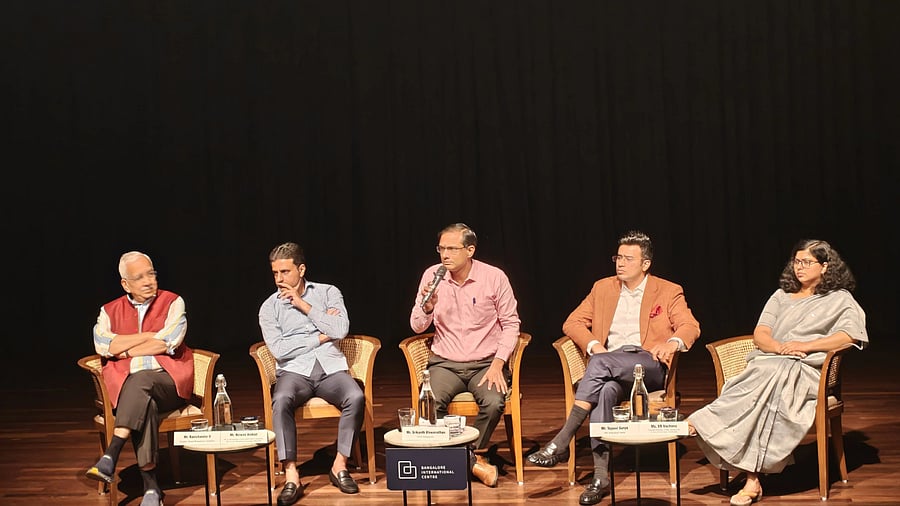
Credit: DH photo
The city’s urban evangelists congregated at a dialogue series, held in the city on Saturday, hoping to expand the civic space through informed, constructive conversations connecting policy, practice, and public discourse.
The inaugural session, held at Bangalore International Centre in collaboration with Janaagraha, brought together leaders across the political spectrum to discuss and debate what really the Greater Bengaluru Governance (GBG) Act, India’s first metropolitan governance framework, can deliver for citizens.
The discussion focused on four key areas: Planning and mobility, citizen-centric governance, transparency, and ward committees.
In a session titled, ‘The Bengaluru Debates’, panellists included Tejasvi Surya (MP, Bangalore South), Rizwan Arshad (MLA, Shivajinagar and Chair of the Joint Select Committee on GBG Bill 2024), Ravichandar (Member, Brand Bengaluru Committee), and V R Vachana (Associate Director–Policy, Janaagraha). The session was moderated by Srikanth Viswanathan, CEO, Janaagraha.
The session took off on a high note with Tejasvi Surya arguing that the GBG Act centralises power and fails to empower mayors, calling it an unnecessary bureaucratic layer. Arshad countered the argument stating that the GBA Act aims to decentralise, integrate and coordinate multiple agencies such as BMRCL, BWSSB, BESCOM, and BMTC. He highlighted the new requirement for monthly coordination meetings to prevent overlapping work, like road relaying and pipeline digging.
V Ravichandar, involved in drafting the Bill, called the Act a bold experiment in metropolitan governance, stressing that success would depend on implementation and citizens’ adherence to the rule of law. He noted that accountability now lies directly with the Chief Minister and Deputy Chief Minister.
Vachana added that while Bengaluru needed a unified body, the new metropolitan committee’s jurisdiction remains smaller than that of the BDA.
